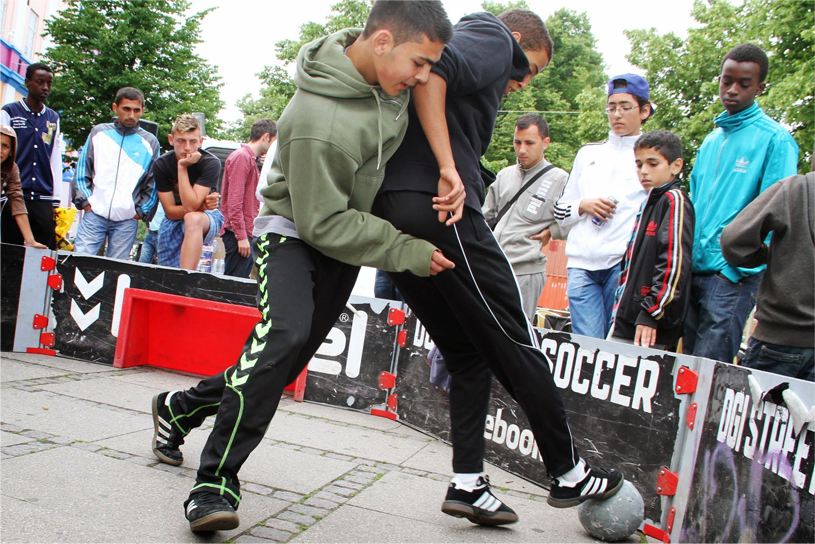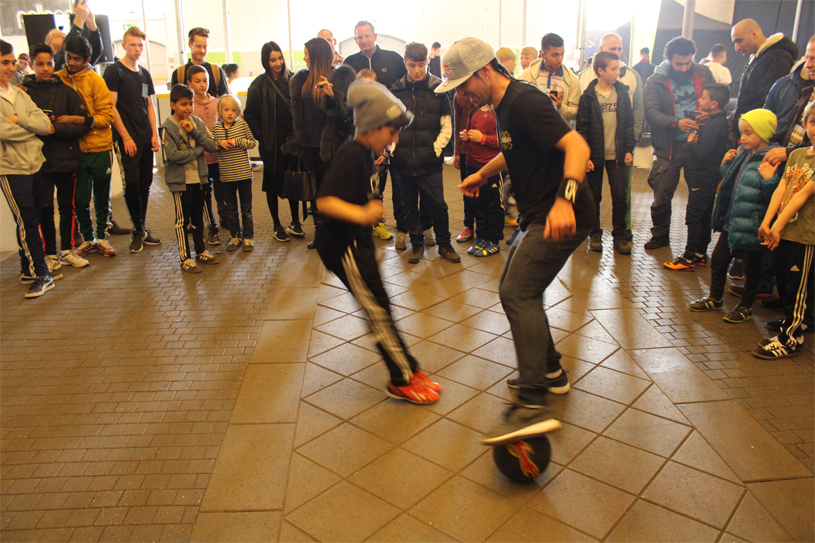What is panna
Panna Street Football Description
Panna or nutmeg (sometimes just "meg" or "tunnel" as well) is a technique used in association football, field hockey or basketball, in which a player rolls or throws the ball between an opponent's legs (feet). The aim of the game is to beat your opponent by scoring more goals or ultimately playing the ball through the opponent's legs, otherwise known as a PANNA.
Panna football game variations:
Panna one vs one (1 vs 1):
Performed in round pitch of 6m diameter and games are of 3 minutes.
Opponents in the field play one versus one. The ball is thrown by a referee and game can be won either on points (who scores more goals)
or making a panna to the opponent player.
Panna two vs two plyers (2 vs 2):
Oval pitch of 6m x 9m and games of 4 minutes. The ball is thrown by a referee.
A correct panna in 2vs2 variation is to play the ball intentionally between the legs of your opponent and to control the ball again (get the ball back).
This can be done by either of the team mates.
If you need more information, please visit PANNA rules and variations.


Panna has been formed with its rules in Surinam (a country from Latin America) in the year 2007 but has gained biggest popularity in Netherlands, where it adopted its final essence. "Panna" is used in Western Europe and Africa. The name itself derives from Surinam. It has different names in different countries - In England the name is "Nutmeg", in Scotland - "peg", in Germany - "Tunnel", in Turkey - "Beşik", in France - "Petit pont" and in Bulgaria - "Kracholche" (Little Leg).
The story of the name "Nutmeg", which is used in England, is interesting. The origin of the word is arguable. Some people think that the term was used for the first time in the novel "A Bad Lot" by Brian Glenville. In the book "Over the Moon, Brian - The Language of Football" by Alex Leet it is said: "the testicles of the player, between whose legs the ball passes, are called "nuts" and Nutmeg derives from this conception".

If you need more information, please visit PANNA rules and variations.


















